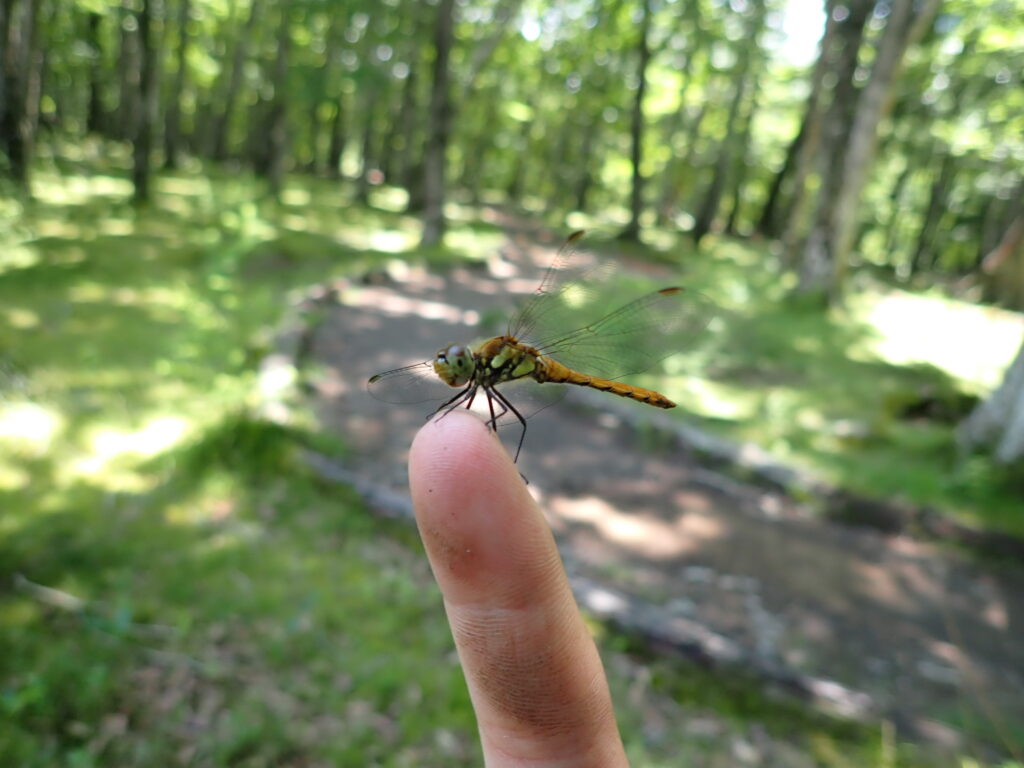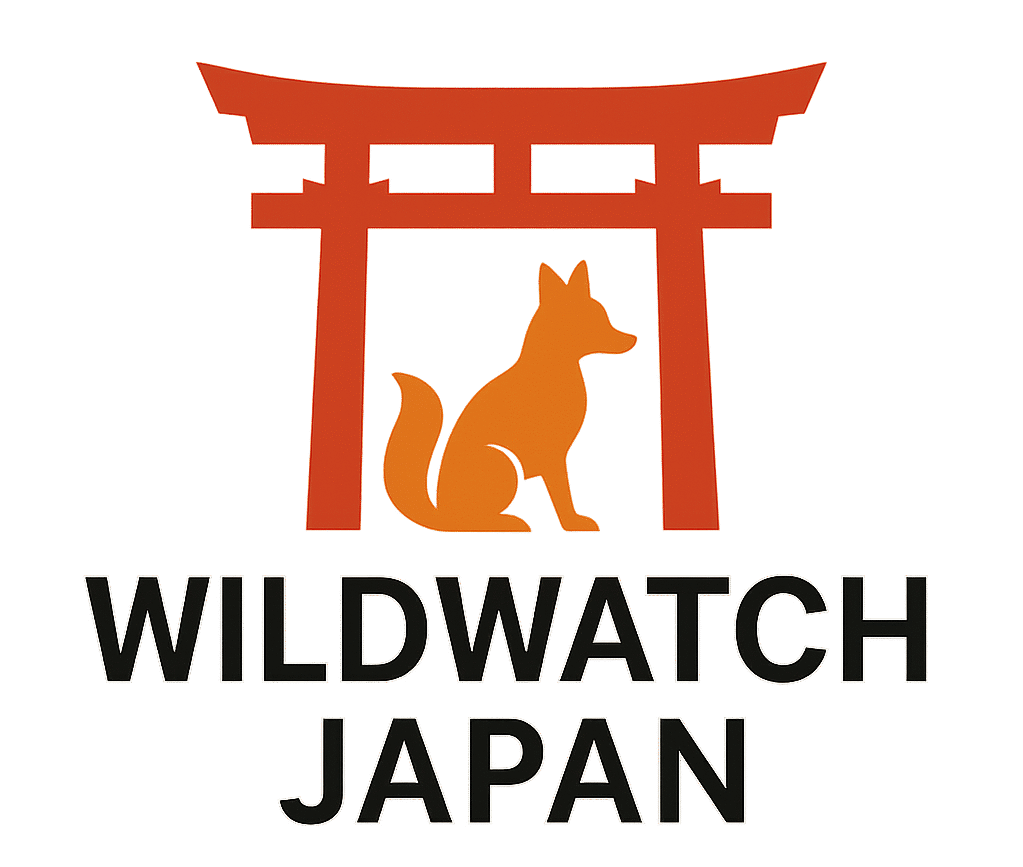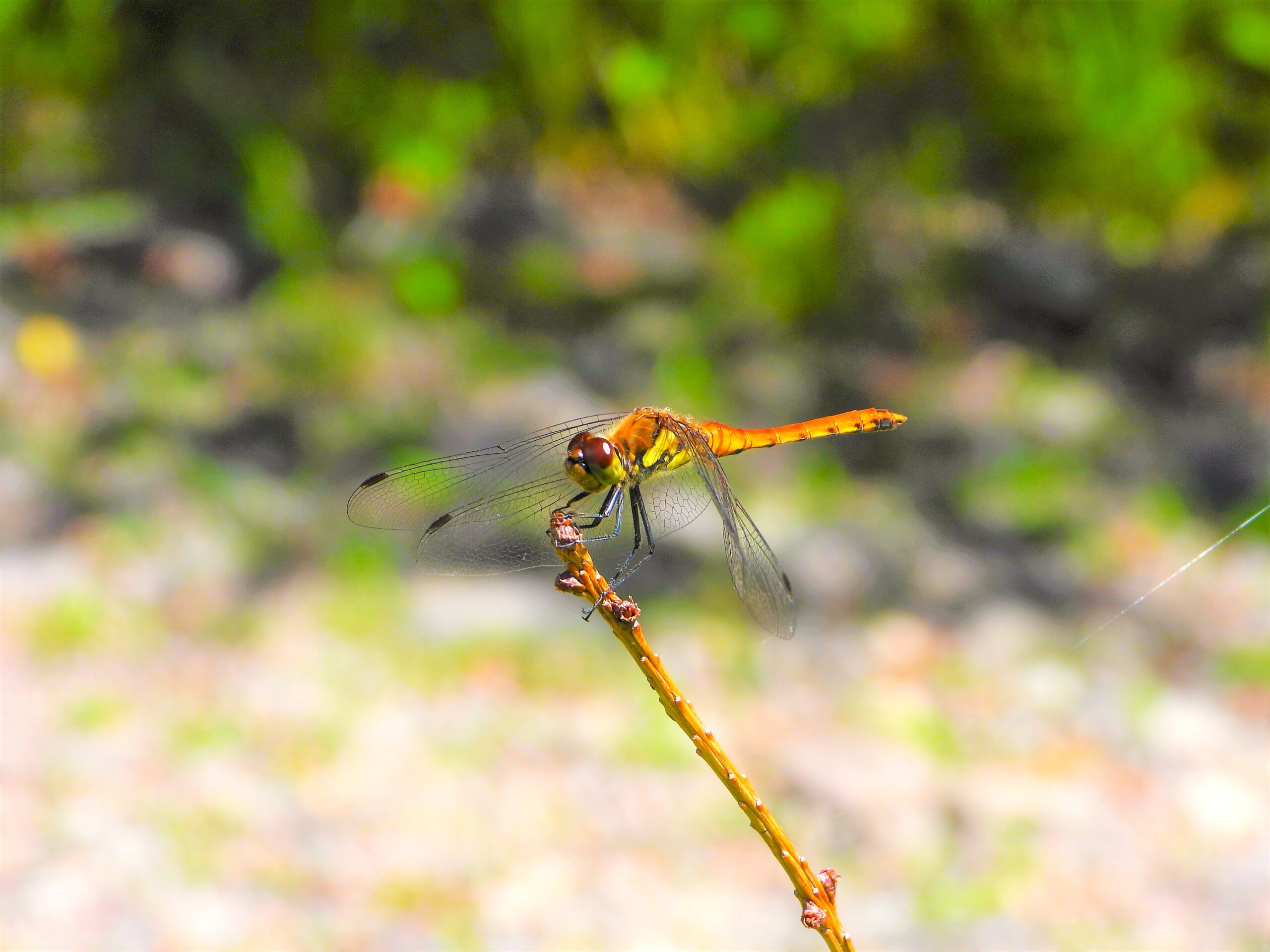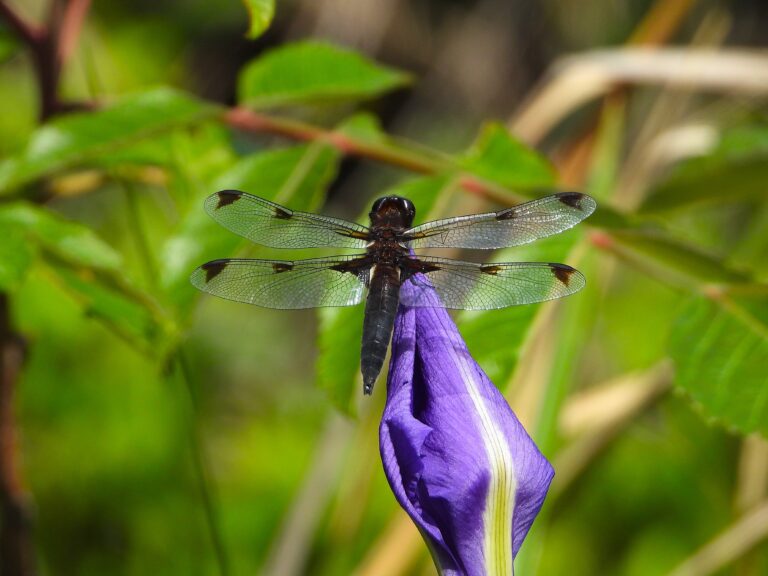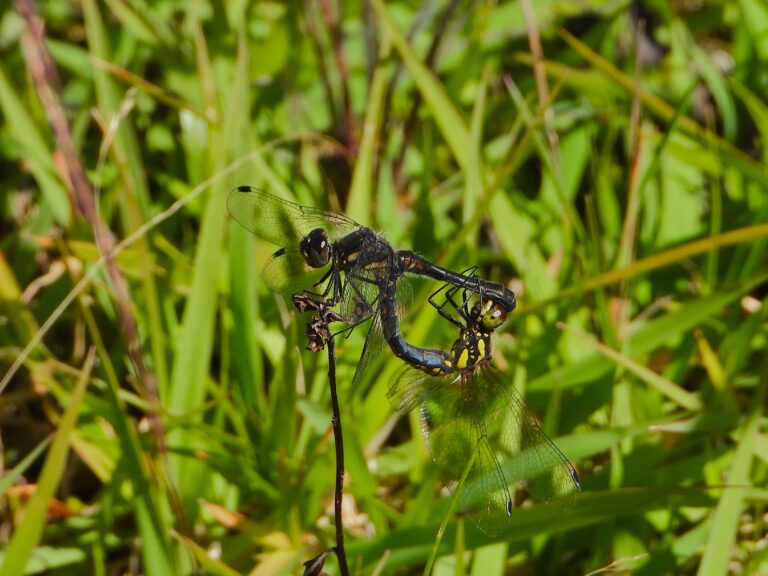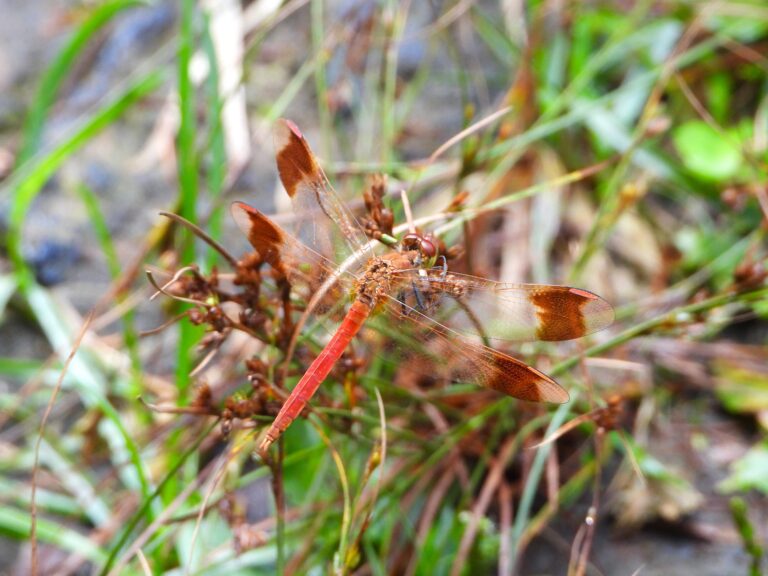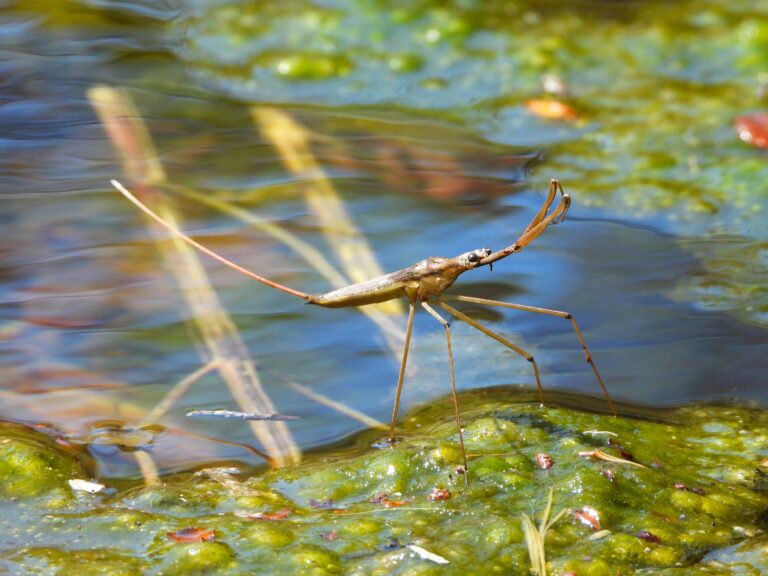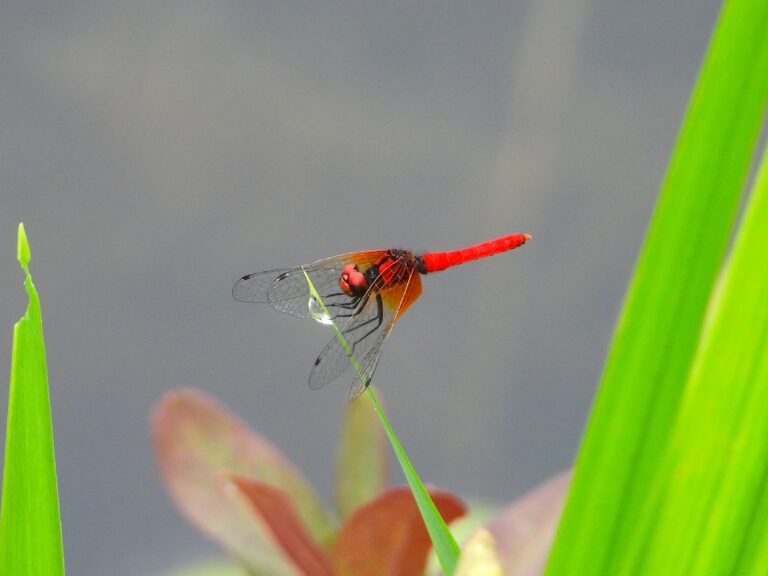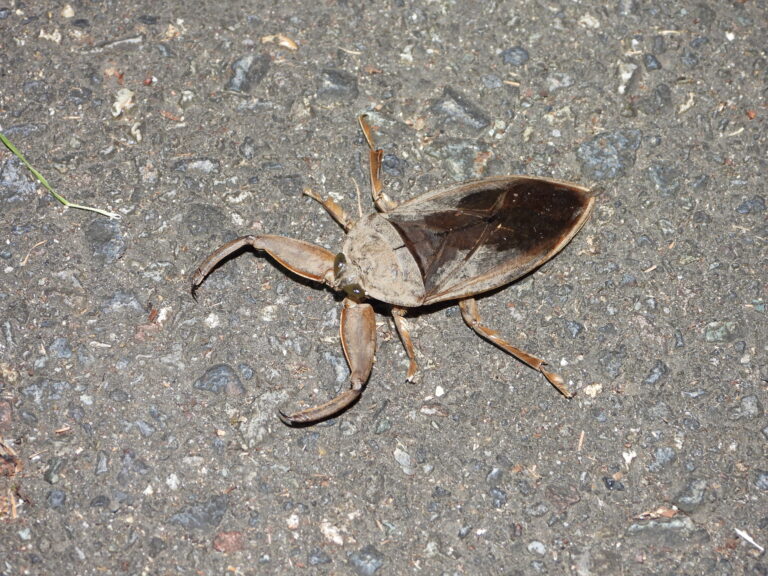Autumn Darter (Sympetrum frequens) – Wildlife of Japan
Introduction
The Autumn Darter, called Akiakane in Japanese, is widely recognized as Japan’s iconic “red dragonfly,” with a well-known seasonal pattern: newly emerged adults leave the lowlands for cool mountains in summer, then return to breed in autumn, often in rice-paddy landscapes.
Appearance
A compact meadowhawk-type dragonfly about 35–45 mm long. Mature males turn bright red on the abdomen, while females and immatures remain yellow-brown to orange.
Habitat & Distribution
Breeds in sunlit, shallow waters such as rice paddies, irrigation ditches, ponds, and marshy edges; forages over open fields. In Japan it is widespread from Hokkaidō through Honshū, Shikoku, and Kyūshū.
Behavior & Seasonality
Life cycle is univoltine—one generation per year. Adults emerge June–July, migrate to cooler mountains for summer, and return September–November to lowlands.
Diet
Adults hawk small flying insects; nymphs in paddies feed on aquatic insect larvae and microcrustaceans.
Reproduction
After harvest, pairs often oviposit in tandem by tapping water or mud in or near drained rice fields. Eggs overwinter, hatch around April, and nymphs develop through spring before emerging in early summer.
Conservation Notes
Populations declined sharply in the 1990s. Research links this to systemic insecticides such as fipronil and imidacloprid used in rice paddies; climate change alone does not explain the decline. Regional trends vary with farming practices.
Author’s Impression
Akiakane drifting over golden rice fields at dusk is one of Japan’s most nostalgic autumn scenes—a symbol of harmony between people and the landscape. In Japan, autumn is inseparable from the sight of these red dragonflies flying over the rice paddies; it is a scene everyone should see at least once.
